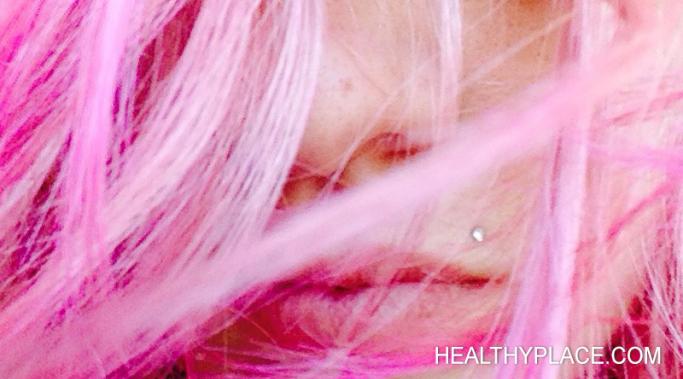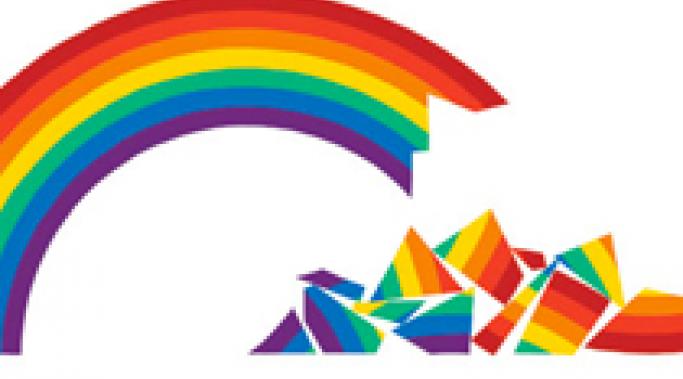Blogs
People with schizophrenia or schizoaffective disorder become very familiar with the term “functioning.” Many mental health professionals I’ve worked with say this means you can get out of bed in the morning, shower, and pay the rent. As a person with schizoaffective disorder (a combination of bipolar disorder and schizophrenia), I think life should be about more than just bathing every day and paying the rent. Functioning with schizoaffective disorder means something else to me.
Sometimes I feel like my binge eating disorder leaves me chasing the feeling of fullness. It’s a strange concept for me to put into words, but I constantly feel that if I’m not full of food, I’m empty; and that sense of being empty makes me panic. Sometimes it strikes me that when I don't have the feeling of fullness I feel as though something’s off and I have to fix it. With binge eating disorder, I seem to chase the feeling of fullness.
Anxiety lies to mask reality, but there are certain truths about you and anxiety that show that you are stronger than your anxiety. That you are stronger than your anxiety is actually another truth. In the last post, I exposed 12 lies anxiety tells you. The following 12 truths counter those lies. Read them. Ponder them. Believe the truths about you and anxiety.
I have found that one way to avoid suicide is to look forward to the little things. I know that sounds simple, but some of the most useful coping techniques are and as I’ve said to many people, when you have a mental illness, you need to do whatever works for you. If it’s stupid but it works, then it’s not stupid. And one of the “not stupid” things I’ve found to avoid suicide is focusing on looking forward to the little things.
In our eating disorders, we fear fat but yes, eating dessert during eating disorder recovery is okay. We fear the way it looks in the mirror or how it collects on our thighs and the way it shows itself in the grams on labels and hovers in molecules of our food. When we have an eating disorder, we’d rather do anything than be fat and so we do. We react in unhealthy ways by starving, binging, purging, overexercising, obsessing over calories, or putting foods into lists of can/cannot eat. In recovery, we learn how to eat for nourishment but desserts can still be a feared and precarious category. But what if recovery included our ability to eat a cookie for the pleasure of it, simply because it’s delicious? What if eating disorder recovery included eating dessert?
There is an undeniable link between dissociative identity disorder (DID) and child abuse. Child abuse can lead to mental health problems that occur in childhood and can continue into adulthood. People often relate childhood abuse to depressive disorders, anxiety disorders, and posttraumatic stress disorder (PTSD), but dissociative identity disorder has the most significant connection to childhood abuse and neglect, so much so that the connection between DID and child abuse cannot be ignored.
I believe that positive actions will lead to positive thinking. To paraphrase Mahatma Gandhi, what you think ultimately determines your actions. With depression, however, sometimes you have to consciously choose actions in order to change your thinking. Positive actions will lead to positive thinking.
Believe it or not, you can embrace the benefits of borderline personality disorder (BPD). Borderline sufferers know the drawbacks of the diagnosis. On top of experiencing the difficult symptoms firsthand, we're also bombarded with BPD stigma, insults, premature judgment and ostracization. Most of what’s written about BPD is negative in nature -- borderline sufferers are portrayed as dangerous, irrational, impulsive, and hopeless. This is not one of those articles. This article is about embracing the benefits of borderline personality disorder.
Too often American society dehumanizes and devalues the lives of drug users, particularly drug addicts. Not recognizing and responding to the humanity of drug addicts is a dangerous moral and societal failing.
Last week was National Crime Victims Rights Week, and while at a rally, someone gave me a pamphlet on domestic violence issues in the lesbian, gay, bisexaul, transgender, queer (LGBTQ) community. While domestic violence can affect anyone and can take many forms, the unique forms of domestic violence in the LGBTQ community are rarely discussed. I will focus on three types of domestic violence issues: strict gender roles, access to safe places, and threat of "outing" without consent.








